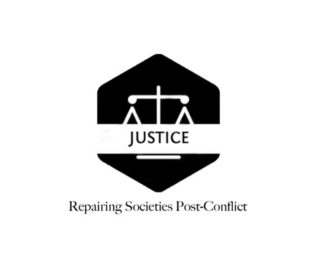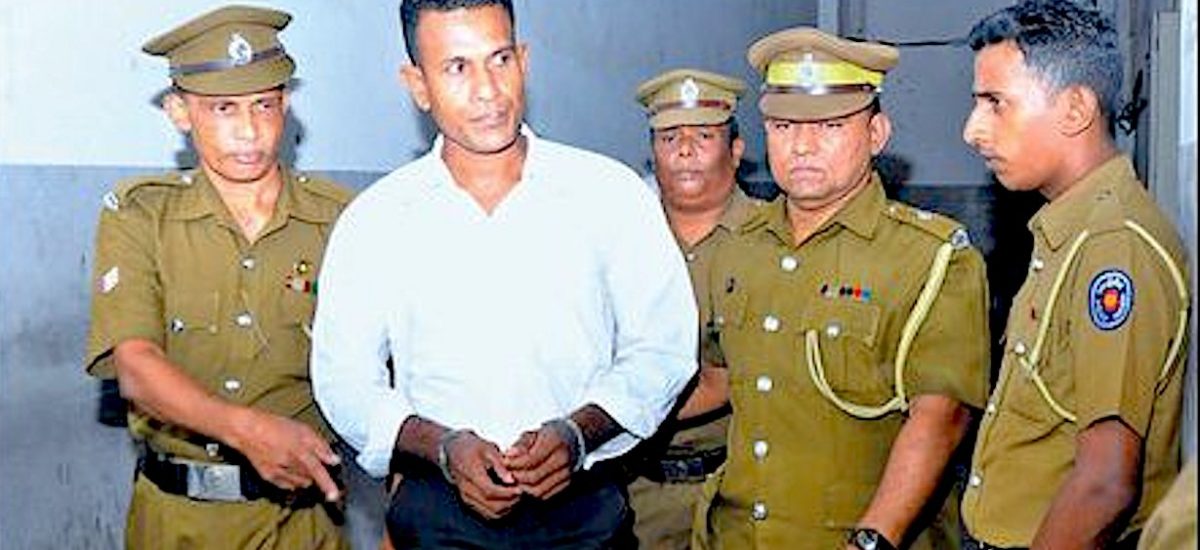Photo courtesy of Amnesty International
It was one of the rare cases of justice being served – Sergeant Sunil Rathnayake was tried and convicted for the murder of eight civilians in Mirusuvil in Jaffna in 2000. Witnesses identified Sergeant Rathnayake as one of the killers; he was given a fair trial and found guilty. The sentence was death. He appealed and both the Appeal Court and the Supreme Court upheld the guilty verdict. Although Sri Lanka has not carried out a death sentence for decades, Sergeant Rathnayake was technically on his way to the gallows for the murder of eight civilians including a three year old child whose throat he had slit. Two other children aged 13 and 15 were also his victims, killed in the same manner to avoid the noise of gunfire. The bodies of the civilians were dumped in a pit.
The victims were refugees who had been displaced from their homes due to the war and were staying with relatives nearby. They had obtained permission from the Army to visit their homes and see their properties. They did not return and were reported missing. On December 24 one of the missing, Mr. Maheshwaran, escaped from Army custody with severe wounds on his body as a result of torture. He gave information about the killings. The corpses of the eight people were found on December 25.
One of presidential candidate Gotabaya Rajapaksa’s constant campaign refrains was that no “war heroes” would be prosecuted. Ever since the end of the war in 2007, and even during the 26 year old civil war, the military was deemed above the law and entitled to evade justice for the many documented war crimes. Several international organisations such Amnesty International, Sri Lanka Campaign for Peace and Justice and the International Truth and Justice Project have long dossiers of testimony from victims, eye witnesses and military personnel themselves of atrocities committed during the war period and especially at the end of the war. Foreign documentaries such as Channel 4’s No Fire Zone: The Killing Fields of Sri Lanka have accused the military of war crimes and breaches of international humanitarian law, which successive governments have denied without refuting the evidence.
One of President Rajapaksa’s first acts after taking office, under the cover of the Covid pandemic, was to pardon Sergeant Rathnayake, a convicted criminal, without any basis in law. While the constitution gives the president the right to pardon convicted criminals, that pardon has to meet several criteria. Pardons allow for clemency when there has been a miscarriage of justice or there are extenuating circumstances. When pardoning a convicted offender, according to Article 34 (1) of the Constitution, the president must request the trial judge for a report and forward that report to the Attorney General with instructions that the Attorney General’s advice is sent to the Minister of Justice along with the trial judge’s report. The Minister of Justice then forwards the report to the president with his/her recommendations. It is unclear whether this process was followed because it was not made public.
“This procedure, involving multiple decision-makers across the judiciary, the official bar, and the political executive, is there to ensure that the President’s exercise of this power is done with the greatest possible caution and careful consideration. It is there to ensure the integrity of the criminal justice system and to guard against abuse in the grant of pardons,” wrote constitutional lawyer Asanga Welikala on Groundviews.
K.S. Ratnavale, the lawyer representing the victims, said, “The president persisted in giving the pardon and that was one more nail in the coffin of the accountability and rule of law of successive governments. I don’t think that could be justified under any circumstances.”
Lawyer and activist Bhavani Fonseka pointed out that while the victims could celebrate that they were able to obtain justice after several years, even if only for a few months, the use of the presidential pardon should be carefully looked at to examine how it is used and abused. “This issue should be watched very carefully since it is a matter of public interest and can affect any individual,” Ms. Fonseka said.
“As the Supreme Court decision illustrates, the murders were cold-blooded, and time and care were taken to commit them in a manner that would avoid detection, which is indicative of premeditation. Further, there was no remorse expressed by the convicted person, who in his Dock Statement had denied any involvement in the murders despite the fact it is he who pointed out the place where the bodies were buried. The rejection of his Dock Statement by the Trial-at-Bar was affirmed by the Supreme Court,” wrote activist Ambika Satkunanadan on Groundviews.
The trial at bar took twelve years to conclude proceedings. The appeal took a further three years so it was 15 years before justice was served, only to be overturned less than a year later. Despite clear evidence of a series of crimes committed by several persons acting in collusion, only one person was convicted; four other soldiers in connection to the massacre were acquitted due insufficient evidence. “These cases point to structural deficiencies in the investigation and preparation of human rights prosecutions, and have resulted in widespread mistrust of police investigations and Attorney General led prosecutions,” wrote lawyer Niran Anketell.
Mr Ratnavale pointed out that there had been inordinate delays in the conducting the case and that one judge, Sarath Ambepitiya, was gunned down and a new judge had to be appointed. Also, the confessions made to the military police were ruled inadmissible in court.
“The tragic thing is that the people who survived and the families of those who were killed were not given any compensation although the state was responsible for their deaths. Compensation should have been claimed. The families of the dead are without breadwinners and they were left in the lurch. The lesson to be learnt is that compensation to the victims should also be pursued,” Mr Ratnavale said.
In October, the Supreme Court granted leave to proceed with five fundamental rights petitions filed challenging President Gotabaya Rajapaksa’s decision to grant a presidential pardon to Sergeant Rathnayake.
Several petitioners including the family members of the victims and the Centre for Policy Alternatives have filed the petitions naming the Commissioner General of Prisons, the Minister of Justice, the Secretary to the President and the National Authority for the Protection of Victims of Crimes and Witnesses as respondents.


